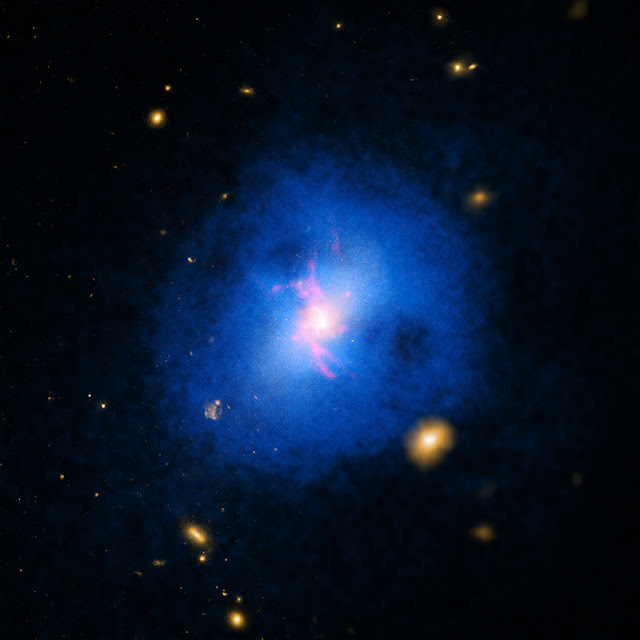(July 1, 2015) There
may be far fewer galaxies further out in the universe then might be expected,
according to a new study led by Michigan State University.
Over the years, the Hubble Space Telescope has allowed
astronomers to look deep into the universe. The long view stirred theories of
untold thousands of distant, faint galaxies. The new research, appearing in the
current issue of the Astrophysical Journal Letters, however, offers a theory
that reduces the estimated number of the most distant galaxies by 10 to 100
times.
“Our work suggests that there are far fewer faint galaxies
than we once previously thought,” said Brian O’Shea, MSU associate professor of
physics and astronomy. “Earlier estimates placed the number of faint galaxies
in the early universe to be hundreds or thousands of times larger than the few
bright galaxies that we can actually see with the Hubble Space Telescope. We
now think that number could be closer to ten times larger.
O’Shea and his team used the National Science Foundation’s
Blue Waters supercomputer to run simulations to examine the formation of
galaxies in the early universe. The team simulated thousands of galaxies at a
time, including the galaxies’ interactions through gravity or radiation.

